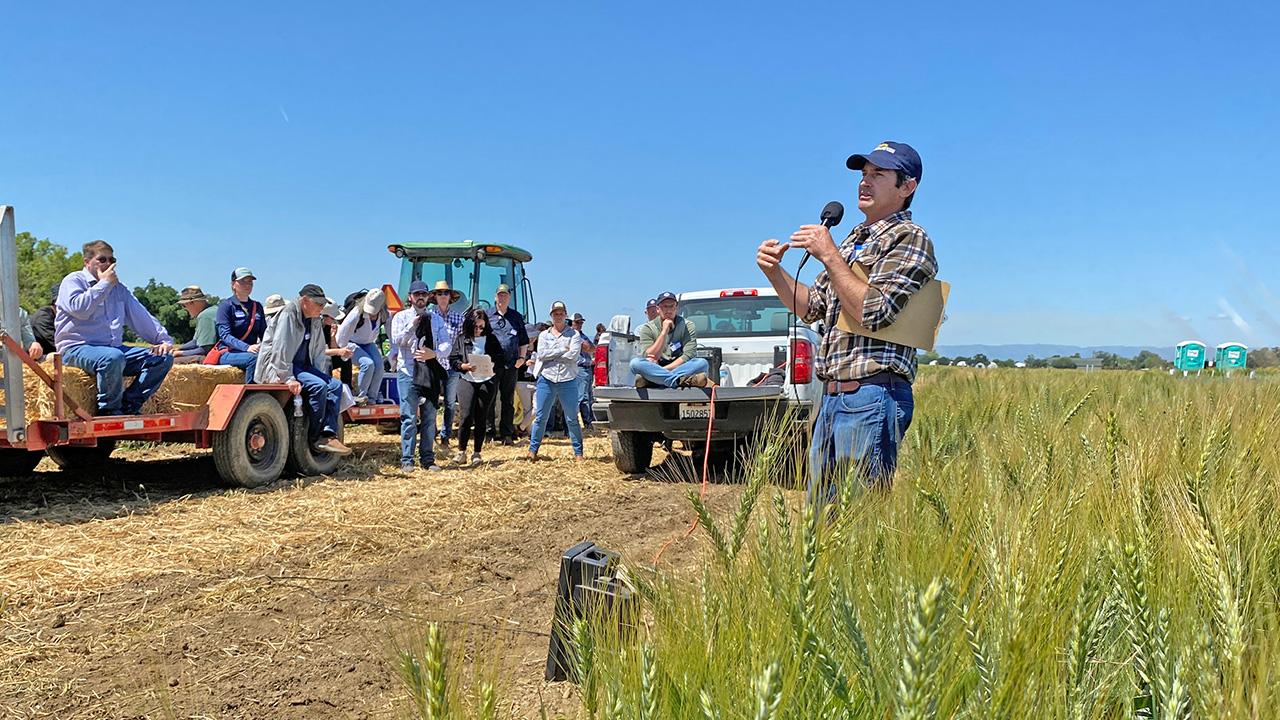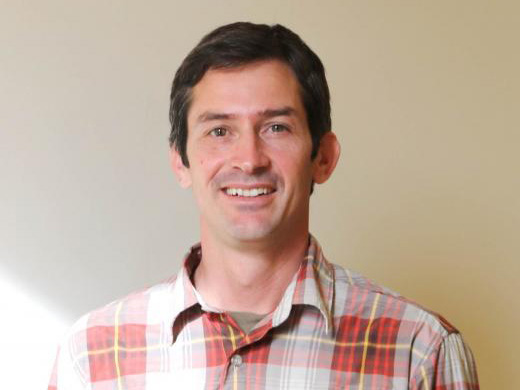
GSR Profile: Mark Lundy -- Associate professor of Cooperative Extension
GSR awards are seeds that bear much fruit
Mark Lundy is now an associate professor of UC Cooperative Extension in the UC Davis Department of Plant Sciences. In addition to researching new ways to manage farmland more efficiently – including water – he leads field days to share that research and is teaching a new generation of top agronomists.

Q: You received a Graduate Student Research award as a student in the UC Davis Department of Plant Sciences. How did that help you? It provided a base of support for applied research that I could tailor to fit the needs of industry clientele with greater flexibility than if my graduate work had been solely supported through grant funding. It gave me room for greater creativity and interaction with people in industry and, as a result, my research had outcomes with direct, practical applications.
Q: How did this training help you to secure your current job? Effective agronomists tend to be generalists. As a graduate student, I worked on a wide range of agronomic topics and gained a broad understanding of cropping systems and applied research methods, tools and approaches. This broad base of knowledge prepared me to work in other crops and cropping systems after joining UCCE, where I've continued to build on this solid foundation.
Q: What was your research during your graduate studies at UC Davis? Broadly, my research quantified how the timing of crop management influenced the effectiveness of the management outcome with respect to fertilizer amendments, water management and weed control.
Q: What outreach and extension research did you undertake as part of your studies? Most of the research we conducted was on farm fields, so our results tended to be applicable and of interest to both growers and the support industry. We presented our results on an ongoing basis at field days, grower meetings and workshops, as well as at regional and national conferences.
As part of my Ph.D. work, I also developed an interactive website that provided site- and time- specific recommendations for rice growers. This experience added to my interest and expertise in developing interactive, web-based tools to help farmers make the best possible management decisions.
Seeds that bear much fruit
Thanks to the James Monroe McDonald Endowment, the Department of Plant Sciences has been able to support dozens of our very best graduate students -- scientists-in-training such as Mark Lundy -- with awards that supplement their finances. Graduate Student Research awards provide $20,000 yearly for two years to master's degree students, and for four years to doctoral students.
Like Lundy, many go on to careers supporting UC Cooperative Extension and its larger mission. The McDonald Endowment, administered by UC Agricultural and Natural Resources, provides these funds so that our students can translate research into action, making an impact on California and beyond.
In this series, we highlight a few of our GSR award recipients who have gone on to careers supporting healthy food systems, healthy environments, healthy communities and healthy Californians.
Related links
Apply for a GSR award.
The James Monroe McDonald Endowment, administered by UC ANR, funds our GSR awards.
Media Resources
- Trina Kleist, UC Davis Department of Plant Sciences, tkleist@ucdavis.edu, (530) 754-6148 or (530) 601-6846
